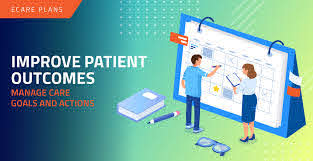Abandoned Prescriptions: A Major Concern for the Healthcare System
- By
- Tom Modeen
Background
Abandoned prescriptions occur when medications prescribed are not picked up by the patient.The key goals of the CMS Star Ratings initiative are to promote healthier patients and reduce spending. Medication Adherence and Primary Medication Non-Adherence (PMN) are key measurements in defining patient wellness. PMN occurs when a patient is prescribed a medication for the first time and fails to take it.
Former US Attorney General, C. Everett Koop was quoted as saying, “Drugs don’t work in patients who don’t take them.”

In a brief published in October 2014 by The Network for Excellence in Health Innovation (NEHI), “Ready for Pickup: Reducing Primary Medication Non-Adherence,” it is stated that “the least PMN rates for many medications commonly used to treat familiar chronic diseases range from 10 to 15 to 20 and even 30 percent.”
The paper states “electronic prescribing now makes it feasible to track “first fills” of newly prescribed medications and to calculate rates of primary medication non-compliance.” This “first fill” information is matched to claims adjudication activity to arrive at the PMN score. The typical pharmacy workflow model calls for the filling of prescriptions upon arrival. With PMN rates at their stated levels, this leaves many prescriptions in the will call area unclaimed.
Point of Care Systems and PrescribeWellness Provide Tools to Enhance Medication Adherence
Point of Care Systems was an early adopter of the powerful technologies afforded by PrescribeWellness. The results of this partnership for our pharmacy customers is remarkable yielding increased prescription fill activity due to the deployment of automated patient medication  adherence calls This has been made attainable through our thoughtful and seamless integration with PrescribeWellness.
adherence calls This has been made attainable through our thoughtful and seamless integration with PrescribeWellness.
Important Technologies to Help Address Primary Medication Non-adherence :
Point of Care Systems POS

Through tight integration with the Point of Care Systems Pharmacy Management System, all completed prescriptions are housed in a system queue. Scanning the prescription bar code at the POS register removes prescriptions from that queue and marks them as, “picked up.” A management report will detail all prescriptions filled, but not picked up, for pharmacy staff follow up. This report may be run on demand.
Telemanager Technologies IVR
 Many think of IVR solely as an auto-attendant technology routing incoming pharmacy calls to their desired destinations as well as receiving and routing new patient refill requests to the pharmacy staff. Point of Care Systems has partnered with Telemanager Technologies for their outstanding history and reputation as well as a comprehensive solution to assist in managing the pharmacy will call area.
Many think of IVR solely as an auto-attendant technology routing incoming pharmacy calls to their desired destinations as well as receiving and routing new patient refill requests to the pharmacy staff. Point of Care Systems has partnered with Telemanager Technologies for their outstanding history and reputation as well as a comprehensive solution to assist in managing the pharmacy will call area.
The Point of Care Systems interface with Telemanger Technologies built additional IVR capabilities directly into Point of Care Systems workflow. Once the pharmacist has completed the final review of the prescription in Quality Assurance. The prescription is then marketed complete. Through the interface, the Telemanager Technologies IVR System will place outgoing SMS calls to the patient informing them that the prescription is ready to be picked up.
The interface between the two systems is comprehensive. If a patient has multiple prescriptions for pick up, only one call will be made for the orders ready. The manager of the pharmacy can create parameters for the SMS patient notifications that will terminate said calls on the desired date.
The Point of Care Systems/Telemanager Technologies solution has contributed greatly to the management of our customers’ will call areas.
RxMedic ARS (Automated Prescription Retrieval System)

A common contributor to prescription abandonment is the lack of organization in the will call area. Patients arrive at the pharmacy to pick up prescriptions not knowing that there are other prescriptions available for pick up. I have seen many instances where the pharmacy staff fail to retrieve patient prescriptions that are simply residing in a disorganized area.
The errors get compounded further when staff members are unaware that prescriptions are ready to be picked up for other members of that patient’s family. Disorganization has its consequences and pharmacy revenue is “left on the table” and the health of the patient is not being served.
RxMedic, one of Point of Care Systems’ industry partners, has released the first affordable and uniquely comprehensive automated prescription retrieval system: ARS. ARS provides busy pharmacies with management over the overly taxed pharmacy will call area. ARS eliminates confusion and missed prescriptions available at the pickup window.
Once the pharmacist has completed the Quality Assurance step in the Point of Care Systems’ workflow, the staff member will be prompted to scan the Rx bar code, one of the available ARS prescription bags lights up and the prescription is placed in that bag for quick and easy retrieval at pick up. 
All of these great systems are examples of the value of technology as an aid to ensuring better health outcomes and enhancing pharmacy practice in the 21st century.




